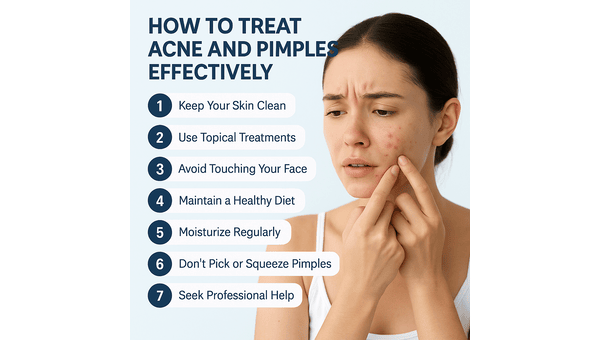How to Treat Acne and Pimples Effectively- Clear Skin Naturally and Medically
Oct 14, 2025
How to Treat Acne and Pimples Effectively—Clear Skin Naturally and Medically
Acne and pimples are two of the most common skin problems that people of all ages, from teens to adults, have. When too much oil (sebum), dead skin cells, and bacteria get stuck in the pores of the skin, it causes inflammation, redness, and breakouts.
Acne can be hard to get rid of, but the good news is that you can control and stop it with the right skin care, diet, and medicine.
Let's look at some tried-and-true home remedies, medical treatments, and expert advice for getting rid of acne and pimples.
1. Know the Different Kinds of Acne
It's important to know what kind of acne you have before you treat it.
Some common types of acne are:
Whiteheads are small bumps that are closed and sit under the skin.
Blackheads are open pores that are full of dirt and sebum.
Papules are red, swollen bumps that don't have pus.
Pustules are pimples that are full of yellow or white pus.
Nodules and cysts are painful, big, and deep lumps that can leave scars.
Knowing what kind of acne you have can help you pick the best treatment plan, whether it's topical, oral, or procedural.
2. Use a gentle skincare routine
The most important part of managing acne is having a good daily skin care routine.
Morning Routine:
To get rid of extra oil and bacteria, use a gentle, oil-free cleanser with salicylic acid or benzoyl peroxide.
Moisturizer: To keep your skin hydrated, always use a moisturizer that doesn't clog pores.
Put on broad-spectrum sunscreen (SPF 30+) every day to protect your skin from the sun and acne scars.
Nighttime Routine:
To get rid of dirt and other pollutants, clean again.
Use an acne treatment gel or cream that contains adapalene, niacinamide, or clindamycin.
Put on lotion before bed.
Pro Tip: Don't use harsh scrubs or wash your face too often, as these can make acne worse and irritate your skin.
3. Use acne medicines that work
Dermatologists may suggest topical or oral acne medicines if home remedies or over-the-counter products don't work.
Mediscount has some of the best acne treatments you can find online:
Treatments that go on the skin:
DERMIFORD K5 Cream: Helps reduce redness, acne scars, and dark spots.
DEXODERM NF Cream has ingredients that kill bacteria and reduce inflammation, which makes it a good treatment for pimples.
KETOSCORE 6 Cream: Keeps oil from building up, lowers redness, and stops acne from coming back.
Medications taken by mouth:
Antibiotic pills, such as Doxycycline or Azithromycin, to kill the bacteria that cause acne.
Vitamin A derivatives (Isotretinoin) are used to treat severe cystic acne, but only with a doctor's supervision.
Supplements of zinc or vitamin E can help your skin heal faster and lower inflammation.
Mediscount is India's most trusted pharmacy for safe and affordable dermatology products. You can buy acne and pimple medicines there.
4. Eat foods that are good for your skin
The food you eat has an effect on your skin. Stay away from foods that make your hormones or oil production go out of whack.
Things to Stay Away From:
Foods and drinks with a lot of sugar
Too much dairy
Food that is fried or bad for you
Foods with a high glycemic index (white rice, bread, sweets)
Foods to Eat:
Fruits and vegetables that are fresh, especially those that are high in vitamins A, C, and E
Flaxseeds, walnuts, and fish all have omega-3 fatty acids.
Grains and legumes in their whole form
Green tea for its ability to fight inflammation
Drink at least 8 to 10 glasses of water every day to flush out toxins and keep your skin clear.
5. Take care of your hygiene and lifestyle
Your daily habits have a big effect on how well you can control your acne:
Change your towels and pillowcases often.
Don't touch or pop pimples; it spreads bacteria and makes scars.
Sleep well for 7 to 8 hours.
Use yoga, meditation, or deep breathing to deal with stress.
Exercise on a regular basis to improve circulation and get rid of toxins in your skin.
Small habits that you stick to can make your skin healthier in the long run.
6. Use natural home remedies with caution
Natural remedies can help with medical treatment.
Aloe Vera Gel: Calms the skin and lowers swelling.
Tea tree oil has antibacterial properties that help kill the bacteria that cause acne.
Honey and cinnamon mask: a natural antiseptic mix that helps get rid of pimples.
Green tea toner helps control oil and make pores smaller.
Before using natural remedies on your whole face, always do a patch test.
7. Think about dermatological treatments
If you have acne that won't go away or scars from acne, see a dermatologist for more advanced treatments like:
Chemical peels remove dead skin cells and lighten scars.
Laser therapy helps control oil glands and lighten skin.
Microdermabrasion or microneedling helps new skin cells grow and makes the skin feel smooth.
For safe and visible results, only certified skin specialists should do these procedures.
8. When to Go to the Doctor
If you have acne:
Is cystic or hurts
Makes scars
Doesn't get better with over-the-counter creams after 6–8 weeks
After that, it's time to see a dermatologist for treatment with a prescription.
In conclusion
With the right skin care, diet, lifestyle changes, and medical help, you can get rid of acne and pimples. Consistency is the key to clear skin, whether you like natural home care or medicines that your dermatologist recommends.
Mediscount has a lot of dermatologist-recommended creams, gels, and tablets for treating acne. They will be delivered safely to your door at a low price.
Say goodbye to acne and take care of your skin health today, in a natural and effective way!
Recent Post

Mediscount's Guide to Better Digestion Online for Gut Health
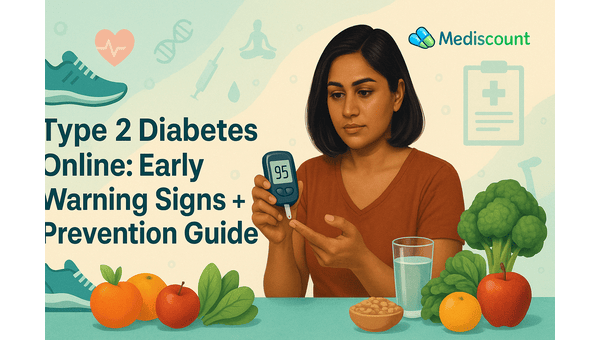
Type 2 Diabetes Online: Early Warning Signs + Prevention Guide
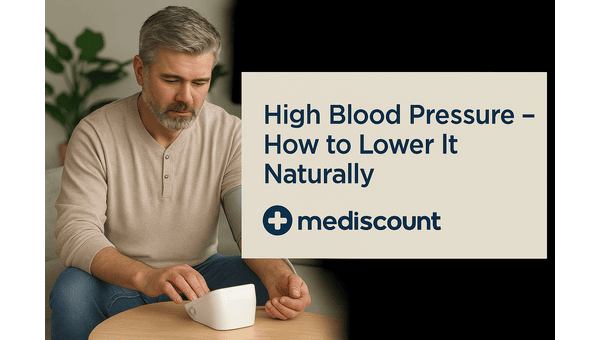
High Blood Pressure – How to Lower It Naturally | Mediscount

How to Lose Weight Safely and Naturally: A Complete Guide by Mediscount
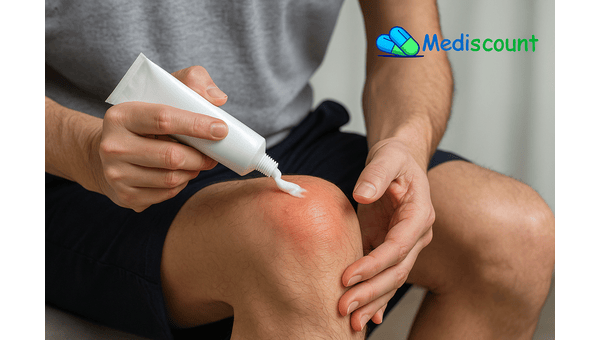
Top 10 Pain Relief Gels for Instant Relief from Muscle and Joint Pain
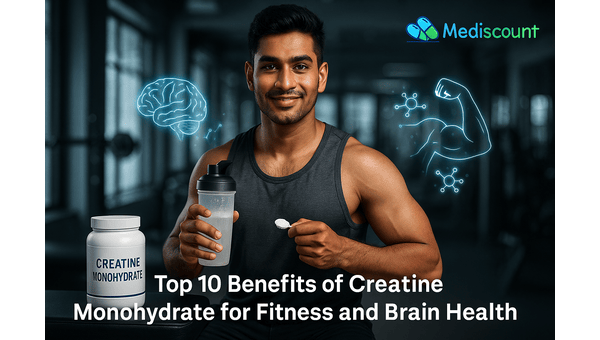
Top 10 Benefits of Creatine Monohydrate for Fitness and Brain Health
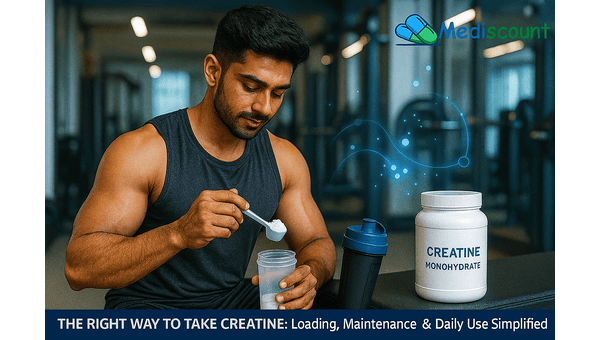
The Right Way to Take Creatine: Loading, Maintenance & Daily Usage Explained
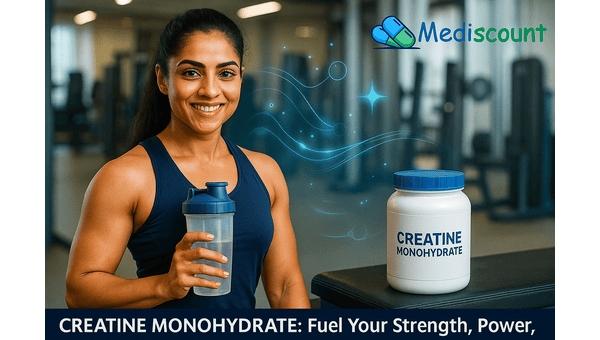
Creatine Monohydrate: The Ultimate Workout Supplement for Strength and Performance

Power of Nature: A Complete Herbal Hair Oil Blend for Stronger, Healthier Hair

Daily Multivitamins, Multiminerals, and Antioxidants: The Foundation of Everyday Wellness

